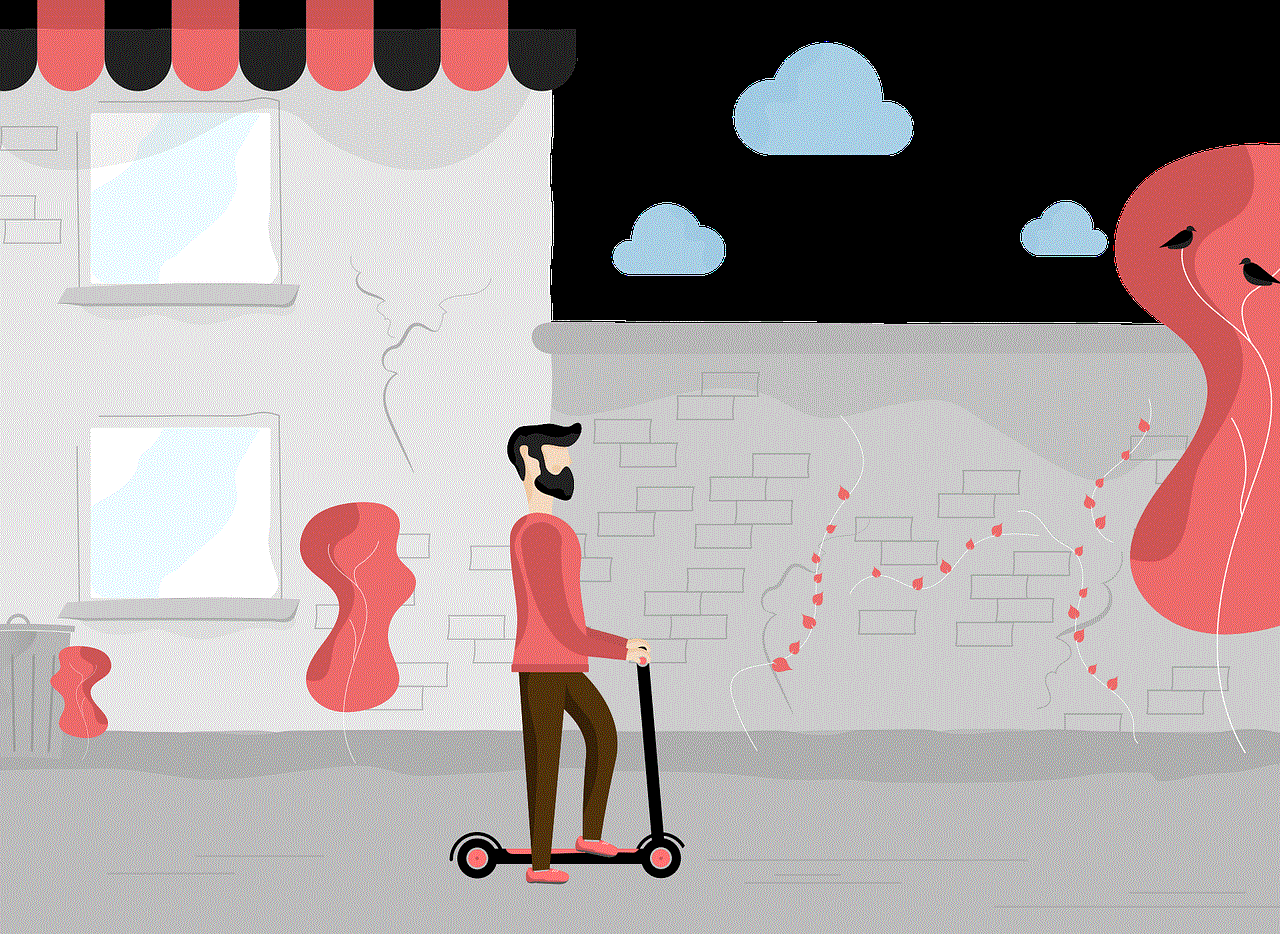how to retrieve a deleted facebook account
In today’s digital age, social media has become an integral part of our lives. It is a platform for connecting with friends and family, sharing our thoughts and experiences, and staying updated on current events and trends. And one of the most popular social media platforms is Facebook, with over 2.8 billion active users worldwide. However, there may be instances where a user decides to delete their Facebook account for various reasons. But what happens if you have a change of heart and want to retrieve your deleted Facebook account? Is it possible? In this article, we will explore the process of retrieving a deleted Facebook account and provide helpful tips for a successful recovery.
Before we dive into the steps of retrieving a deleted Facebook account, it is essential to understand the difference between deactivating and deleting an account. Deactivating your account means that it is temporarily unavailable, and you can reactivate it at any time by logging back in. On the other hand, deleting your account is a permanent action, and once it is done, all your information, including photos, posts, and messages, cannot be recovered. So, if you have mistakenly deleted your account, it is crucial to act quickly to retrieve it before it is permanently gone.
The first step towards retrieving a deleted Facebook account is to check if it is possible to recover it. According to Facebook’s Help Center, if you have deleted your account, it cannot be recovered. However, there is a window of 30 days within which you can cancel the account deletion request and reactivate your account. After this period, your account is permanently deleted, and there is no way to retrieve it. So, it is crucial to act promptly if you want to recover your deleted Facebook account.
To retrieve a deleted Facebook account within the 30-day window, you will need to follow a few simple steps. Firstly, go to the Facebook login page and enter your email address or phone number and password. If your account is still within the 30-day grace period, you will be prompted with a message stating that your account is scheduled for deletion and providing an option to cancel the deletion request. Click on ‘Cancel Deletion’ to reactivate your account. You will then be asked to confirm your decision, and once you do, your account will be restored, and you can use it as you did before.
But what if you have already passed the 30-day window, and your account is permanently deleted? Is there no hope for retrieving it? Fortunately, there are still some options available to recover your deleted Facebook account. The first option is to try and contact Facebook’s customer support team. To do this, go to the Facebook Help Center and click on the ‘Help’ button. From there, you can submit a request for your account to be recovered. You will need to provide some information, such as your name, email address, and a reason for requesting your account to be recovered. It is crucial to provide as much information as possible to increase the chances of a successful recovery.
Another option is to reach out to your friends and family who are still on Facebook and ask them to report your account as hacked. This will bring your account to the attention of Facebook’s security team, and they may be able to assist in recovering your account. However, this option is not guaranteed to work, and it may take some time before your account is restored, if at all.
Furthermore, if you have previously linked your Facebook account to other websites or apps, you can try using the ‘Forgot Password’ option on those platforms. If you can reset your password and login to your account on those platforms, you may be able to retrieve your Facebook account as well. Additionally, if you have previously saved a backup of your Facebook data, you can try restoring it to your account once it is reactivated.
In some cases, retrieving a deleted Facebook account may not be possible. But there are still some things you can do to minimize the loss of your data and information. Firstly, you can download a copy of your Facebook data before deleting your account. To do this, go to your Facebook settings, click on ‘Your Facebook Information,’ and then select ‘Download Your Information.’ This will allow you to save a copy of your photos, posts, and other data before deleting your account. You can then refer to this backup if needed.
Another option is to create a new Facebook account using the same email address or phone number that you used for your deleted account. This will help you to reconnect with your friends and family who may not have your new account information. However, it is essential to note that this may not be possible if your account was permanently deleted due to a violation of Facebook’s Community Standards.
In conclusion, retrieving a deleted Facebook account is not always possible, but it is worth trying. Acting quickly within the 30-day grace period and providing as much information as possible when requesting a recovery can increase the chances of success. It is also essential to take preventive measures, such as downloading your Facebook data and creating a backup account, to minimize the loss of your information. And most importantly, think carefully before deleting your account, as it may not always be possible to retrieve it. Facebook offers a variety of privacy and security settings that can help you control your online presence without having to delete your account.
euro raffle lottery email
The Euro Raffle Lottery has been gaining immense popularity among people worldwide, and for good reason. The chance to win millions of Euros with just a single ticket is an enticing prospect that has attracted millions of players to participate in this exciting game of luck. This lottery, which is a joint venture of nine European countries, was launched in 2004 and has since then been making dreams come true for lucky winners. In this article, we will delve deeper into the Euro Raffle Lottery, its history, how it works, and the impact it has had on its players.
History of the Euro Raffle Lottery
The idea of a pan-European lottery was first proposed in the late 1990s, with the aim of creating a game that would rival the popular American lotteries such as Powerball and Mega Millions. After years of negotiations and planning, the Euro Raffle Lottery was finally launched in 2004, with the first draw taking place in February of that year. The participating countries include Spain, France, the United Kingdom, Austria, Belgium, Ireland, Luxembourg, Portugal, and Switzerland.
How the Euro Raffle Lottery Works
The Euro Raffle Lottery follows a simple and straightforward format. Players purchase a ticket with five main numbers (ranging from 1 to 50) and two additional numbers (ranging from 1 to 12). During the draw, five main numbers and two additional numbers are randomly selected, and players who match all seven numbers win the jackpot. The jackpot starts at €17 million and can roll over up to €190 million, making it one of the biggest lottery jackpots in the world.
In addition to the main jackpot, the Euro Raffle Lottery also offers thirteen other prize categories, giving players more chances to win. These prizes range from a few Euros to millions, depending on the number of matches. Unlike other lotteries, the Euro Raffle Lottery guarantees that at least one player will win the jackpot in every draw. If there is no winner, the jackpot rolls over to the next draw until it reaches the cap of €190 million.
Impact on Players
The Euro Raffle Lottery has had a significant impact on its players, both on a personal and societal level. For many, buying a ticket is a weekly ritual, with the hope of changing their lives overnight. The dream of winning a multimillion-Euro jackpot is a powerful motivation that makes people from all walks of life participate in the lottery. This has led to a sense of community among players, with many forming lottery syndicates to increase their chances of winning.
Winning the Euro Raffle Lottery can have life-changing effects on the lucky winners. Many have used their winnings to pay off debts, buy a new home, travel the world, or even start their own businesses. In addition to the financial benefits, winning the lottery has also brought happiness and fulfillment to the lives of many winners. However, it is important to note that not all winners have had a smooth ride. Some have faced challenges with managing their newfound wealth, leading to bankruptcy and other personal issues.
Controversies
Like any other lottery, the Euro Raffle Lottery has not been without its fair share of controversies. In 2009, a Spanish lottery security guard won a €27 million jackpot, sparking a debate on whether lottery employees should be allowed to participate in the game. The controversy was finally settled when it was ruled that lottery employees could play, but were not allowed to purchase tickets from their own place of work.
Another controversy that has plagued the Euro Raffle Lottery is the issue of unclaimed prizes. In 2012, a £64 million jackpot was left unclaimed by a ticket holder in the United Kingdom, making it the biggest unclaimed prize in the history of the lottery. To combat this issue, the lottery has introduced a time limit for claiming prizes, after which the money is added to the prize fund for future draws.
Charitable Contributions
One of the most significant impacts of the Euro Raffle Lottery has been its contributions to various charitable causes. A percentage of the ticket sales goes towards good causes in the participating countries, making it a socially responsible game. In the United Kingdom alone, the lottery has raised over £30 billion for charities and good causes since its launch. This has had a positive impact on society, with the funds being used to support various initiatives such as education, healthcare, and environmental conservation.



Future of the Euro Raffle Lottery
The Euro Raffle Lottery continues to grow in popularity, with more and more countries expressing interest in joining the game. In 2016, a new rule was introduced that allowed non-participating countries to also play the lottery, further increasing its reach and potential jackpot amounts. This has led to a significant increase in ticket sales, making the Euro Raffle Lottery one of the most successful lotteries in the world.
Conclusion
The Euro Raffle Lottery has undoubtedly become a household name, with millions of people eagerly waiting for the weekly draws. It has not only changed the lives of its winners but has also had a positive impact on society through its charitable contributions. With its simple format, huge jackpots, and the promise of changing lives, the Euro Raffle Lottery is here to stay and will continue to captivate lottery enthusiasts for years to come. So, go ahead and buy a ticket, you never know, you could be the next lucky winner of the Euro Raffle Lottery!
turn off content blocker iphone
Content blockers have become increasingly popular in recent years as more and more people seek ways to protect their privacy and limit their exposure to unwanted or potentially harmful content online. With the rise of smartphones and the prevalence of internet usage on these devices, content blockers have also become available for mobile devices such as iPhones. In this article, we will discuss what content blockers are, how to turn them off on an iPhone, and the potential benefits and drawbacks of doing so.
What are Content Blockers?
Content blockers, also known as ad blockers, are software programs or extensions that can be installed on devices to prevent certain types of content from being displayed. These blockers can be used for various purposes, including blocking advertisements, preventing tracking by third-party sites, and blocking access to specific websites or content deemed inappropriate. While content blockers are most commonly associated with web browsers, they can also be used on mobile devices such as iPhones.
How to turn off Content Blockers on an iPhone
If you have a content blocker installed on your iPhone and want to turn it off, the process is relatively simple. Here’s how to do it:
1. Open the Settings app on your iPhone.
2. Scroll down and tap on Safari .
3. Under the General section, tap on Content Blockers.
4. You will see a list of content blockers that are currently enabled on your device. To turn off a specific blocker, simply toggle the switch next to it to the off position.



5. If you want to turn off all content blockers at once, you can toggle the switch next to “Block Pop-ups” to the off position. This will disable all content blockers on your device.
6. Once you have made your desired changes, you can exit the Settings app and return to using your iPhone as usual.
Benefits of Turning Off Content Blockers on an iPhone
While content blockers can provide a range of benefits when it comes to online privacy and security, there are also some potential drawbacks to consider. Here are some of the potential benefits of turning off content blockers on an iPhone:
1. Improved browsing experience: Content blockers can sometimes interfere with the functionality of certain websites or cause pages to load slowly. By turning off content blockers, you may be able to improve your overall browsing experience.
2. Access to all website content: Some content blockers may block access to certain websites or content that you may want or need to view. By turning off these blockers, you can ensure that you have access to all website content.
3. No conflicts with other apps: Content blockers can sometimes interfere with other apps on your iPhone, causing them to malfunction or crash. By turning off these blockers, you can avoid any potential conflicts.
4. Better battery life: Content blockers can use a significant amount of your iPhone’s battery power, especially if you have multiple blockers installed. By turning them off, you can potentially improve your battery life.
Drawbacks of Turning Off Content Blockers on an iPhone
While there are some potential benefits to turning off content blockers on an iPhone, there are also some drawbacks to consider. Here are a few potential drawbacks of turning off content blockers:
1. Increased exposure to ads: The primary purpose of content blockers is to block ads, and by turning them off, you may be exposing yourself to more online advertisements.
2. Decreased privacy: Content blockers can also prevent third-party trackers from collecting your data, and by turning them off, you may be compromising your online privacy.
3. More potential for malware: Content blockers can also block malicious ads or pop-ups that may contain malware. By turning them off, you may be increasing your risk of encountering such threats.



4. Reduced protection against inappropriate content: If you use content blockers to protect yourself or your children from accessing inappropriate content online, turning them off may remove this protection.
In conclusion, content blockers can offer a range of benefits when it comes to online privacy, security, and browsing experience. However, there may be times when you may want to turn them off on your iPhone, whether it’s to improve performance, access specific content, or avoid conflicts with other apps. While there are some potential drawbacks to turning off content blockers, the decision ultimately depends on your own personal preferences and needs. Consider the pros and cons carefully before deciding whether to turn off content blockers on your iPhone.

